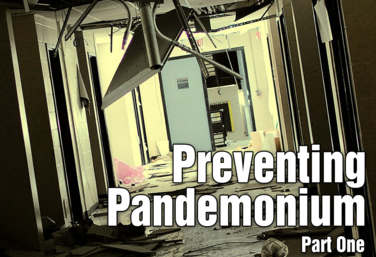Preventing Pandemonium: Part 1
Created by Maria Smith

In Preventing Pandemonium Part 1, Maria Smith will share with you a classroom management tool critical to success. It’s called procedures. Procedures are daily classroom management routines that are the key to classroom management success. They are the essential element of classroom management.
This course will give you straightforward, practical “this is how you do it” information, as well as procedures catered specifically to the drama classroom, to help you maintain order from start to finish, even during that chaotic group practice time.
Imagine yourself in a classroom where you can spend most of your time teaching and keep students on track without the constant lecturing. If that sounds appealing, then start the first module.

12 Modules
3 hours, 43 minutes
8 Credit Hours
Get instant access to this and everything else in the Drama Teacher Academy